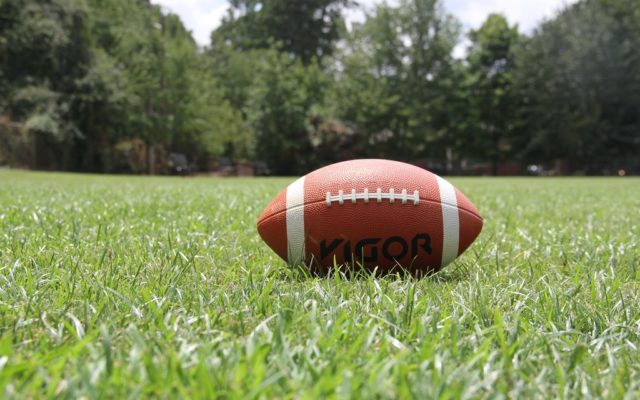
Maine football coaches plan combines to help seniors get noticed by colleges
One element of a normal high school football season is the quest by some athletes to boost their chances of playing the sport in college.
But with tackle football in Maine relegated to a 7-on-7 flag or one-hand touch this year due to the COVID-19 pandemic, a senior recruit’s chance to provide game video that reflects his talent has been reduced.
Enter Skip Capone and the Maine Football Coaches Association.
The longtime former head coach at Lewiston High School and assistant coach at Bates College has spearheaded the creation of four football “combines” for interested members of this year’s high school senior class. They will be held during the first two weekends of October.
The first event will be held at 5 p.m. Saturday, Oct. 3, at Fitzpatrick Stadium in Portland, followed by two sessions the next day, at 9 a.m. at Alumni Field in Augusta and at 3 p.m. at Lewiston High School.
The fourth combine is scheduled for Old Town High School at 10 a.m. on Sunday, Oct. 11.
“We want our seniors to know that if they do want to play at the next level, we want to do everything we can to help them in that process,” Capone said.
Skills to be tested at the combine — a format used by the National Football League to identify top players — likely will include the 40-yard dash, 5-10-5 shuttle run, standing broad jump, vertical leap, strength and agility drills and positional work. The measurements will be certified and the workouts videotaped by Munzing Media — owner Rob Munzing is the former head football coach at Gardiner High — to be made available online to interested coaches.
“There will be one link where coaches can scroll through and find a particular combine participant’s results,” Capone said. “It will make it a little easier for the college coach to go through and find them.”
The combines are free, though participants will be encouraged to make a donation of up to $25 with net proceeds divided between the MFCA and the Shriners Hospitals for Children, the beneficiary of the annual Maine Shrine Lobster Bowl Classic that was canceled this July due to the coronavirus.
Players may register for one of the sessions through their high school coach.
“The way the summer’s been so jumbled for everybody, this is a win-win where the kids get an opportunity to show their stuff, we raise a little money for our association so we can continue to offer coaching clinics and combines like this, and then we’re able to give back to the Maine Shrine, which we’ve had a tremendous relationship with,” Capone said.
The size of each combine is governed by the state’s community sports guidelines that allow for a maximum of 100 people at an outdoor event.
“Once it was decided to do this, it was really about how do we do this in a safe and manageable way,” Dan O’Connell, John Bapst of Bangor head football coach and athletic administrator, said.
He also is a MFCA officer and that organization’s liaison to the Maine Principals’ Association football committee.
“What we had to do was take essentially the same rules we’re applying to 7-on-7 football or soccer or field hockey or anything else this fall and apply them to this combine, things like masks at all time, no more than 100 at the stadium, and only student-athletes from that county or adjacent counties,” he added.
That’s one reason the original plan to hold a single combine in Portland has been expanded to four events around the state.
“Having smaller numbers in each area allows us to do a better evaluation of players,” Capone said. “This is the first time we’ve done this and we’re kind of learning as we go, but it actually makes more sense doing it this way than to try and have one big location.”
Combines and college-based camps typically are part of the football recruiting process, but most were curtailed across New England this summer by the pandemic, leaving few ways for incoming high school seniors to display their skills for college recruiters.
“It’s a challenge for our kids to be recruited, No. 1 because of our location,” Capone said. “Then you lose those one-day camps or combines and now we’re another step behind other parts of the country.”
Capone said Maine coaches waited until the traditional season was postponed before moving forward with the combine idea.
While the sessions are limited to seniors, O’Connell hopes they can become annual spring events for other athletes once the coronavirus threat has abated.
“Once we have more data on the virus and back-to-school and back-to-sport, there may be the opportunity to do something similar with the juniors and underclassmen in the spring, but right now we’re going to stick with the seniors,” he said.